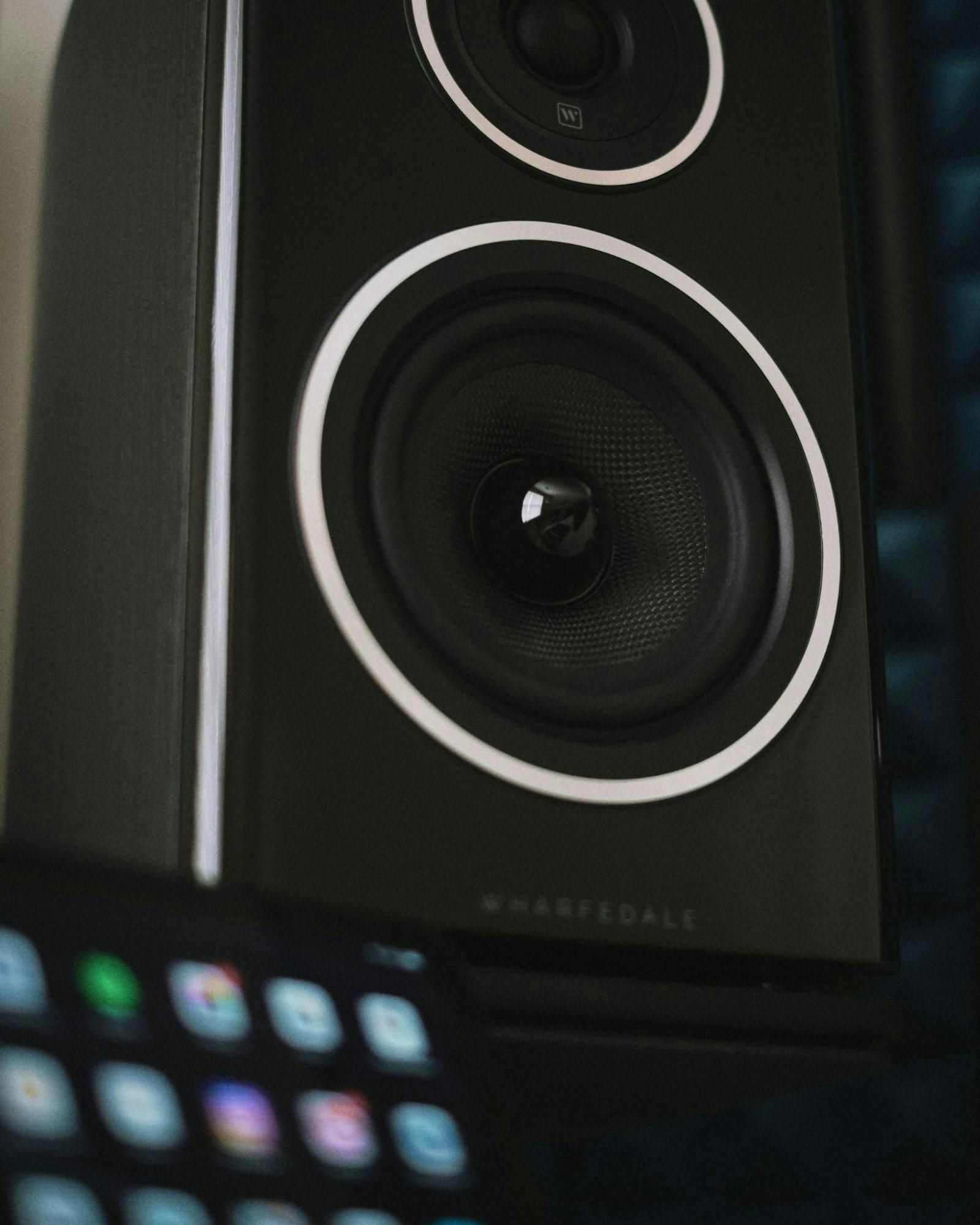Blog
How to License Music for Your Business: A Step-by-Step Guide

The right background music is one of the most cost-effective ways to differentiate your business. Whether you’re a restaurateur hoping to improve your eatery’s ambiance, a bar owner aiming to increase drink sales, or a store manager looking for new ways to attract and retain customers, research indicates that choosing the right soundtrack can help. One important factor is making sure your business’ overhead music is properly licensed.
Some business owners are unaware that personal music streaming services are not licensed to play music in their business establishment. Depending on the study, between 71% to 78% of small business owners in the United States believe this is the case. But when you play music in your business without the proper music license, you could violate copyright law and risk significant fines that may range between $750 to $150,000 per infraction.
By understanding how to license music and how easy it can be, you can leverage the benefits of background music without having to risk fines and legal issues. And while entering the world of music licensing can get confusing (and expensive), knowing the right way to go about this process can help you save money. Soundtrack can provide a comprehensive, on-demand music streaming for business solution, but it’s helpful to have a general understanding of the licenses included.
Posted on January 30, 2024
What Is Music Licensing?
Before you can understand music licensing, you’ll need to know a bit about performing rights organizations (PROs). These groups play a crucial role in the music business—they represent various music catalogs and collect performance royalties. In the US and Canada, many songwriters, composers, and publishers participate in these PROs along with other organizations such as SESAC.
Here are some of the most important PROs to be aware of:
The American Society of Composers, Authors and Publishers (ASCAP). ASCAP licenses more than 18 million songs and was founded in 1914, making it America’s oldest major PRO.
Broadcast Music, Inc. (BMI). Representing 22.4 million pieces of music from over 1.4 million writers, BMI is the biggest PRO in the US.
Global Music Rights (GMR). When it was founded in 2013, GMR was the first new American PRO in almost 75 years. GMR represents some of today's most popular music creators in the public performance licensing of their catalogs.
The Society of Composers, Authors and Music Publishers of Canada (SOCAN). With the involvement of over 4 million music creators and publishers, SOCAN is Canada’s most extensive rights management organization.
Whether you want to legally play music from major-label acts or independent artists, you’ll need coverage in the form of music licenses. A music license agreement gives license holders the right to use one or more songs from a PRO’s repertoire in a specific way. While that includes public performance rights, specific licenses also exist for the use of music in films and TV shows, reproductions of an artist’s work in the form of physical media and sheet music, and other applications.
Why You Should Pay Attention to Licensing
In 2022, revenues for the recorded music industry in the US saw their seventh consecutive year of growth. Performance rights are a massive part of that success, to the point where 80% of global music publishing revenues in 2018 were generated by performance rights.
Because of that, a PRO won’t look the other way when small businesses play songs from their music library without permission. Instead, they’re more than willing to file copyright infringement actions against bars, restaurants, and other companies to protect people with music careers.
When you play unauthorized copyrighted music in your business, you expose your business to serious civil liabilities. These damages start at $750 and can go up to a maximum of $150,000 per copyrighted song played in your business. Since this isn’t a risk most businesses can afford to take, you’ll need to make sure you’re legally covered before playing background music.
3 Types of Music Licenses Required for Playing Music in Your Business
US-based businesses must have these music licenses in place before they can legally play copyrighted music in public:
Public Performance License
Though the term “performance” is often associated with live music, this license does not exclusively deal with live performances. These licenses also come into effect any time copyrighted music is played in a public space.
Do you run a business outside of the US? If so, in order to play a variety of music in your business there may be four or more performing rights organizations necessary, these include ASCAP, BMI, GMR, and SESAC. In this instance, Soundtrack can help you get started playing music, with all the proper licenses, while eliminating the risk of being fined. Visit Soundtrack’s music licensing page and select your country for more information.
Publishing License
This covers the right to use the original composition. Publishing rights concerning original music are the rights that the copyright owner of a song has to control how their music is used and distributed.
Sound Recording License
This license covers the right to stream and play the original sound recording of a song in your business. The license is usually obtained from the copyright owner of the sound recording, which is typically the record label (also known as "Mechanical" licensing, and provides reproduction, digital transmission, and distribution for musical works).
Other Types of Music Licenses
While the three music license types described above should cover your business’s background music, they certainly aren’t the only types of music licenses out there. Additional licenses business owners should familiarize themselves with include:
Live Music Licenses
If your business relies on live music as a critical element of the service it provides, you’ll need to get special public performance licenses directly from the relevant PROs. This requirement applies to live music venues, fitness classes, and businesses that charge for admission.
Sync Licenses
When you plan to use a copyrighted song in a commercial promoting your business, you’ll need a synchronization license first. Sync licenses cover the use of music alongside moving images displayed on a screen, such as in movies, TV shows, and video games.
How Much Does It Cost to License Music?
Are you wondering how to license a song (or a full catalog) while saving money? Though you’ll have to pay for any form of music licensing, some options provide a significantly better value than others:
Subscription Services
In today’s world, streaming is an extremely common way to listen to music. The worldwide market for recorded music grew by 9% in 2022, and the popularity of paid streaming subscriptions was a key factor driving this increase. But while leading services for music streaming offer affordable subscription fees, these apps don’t cover licensing costs.
Fortunately, Soundtrack offers a streaming platform designed specifically for commercial use. Best of all, Soundtrack Essential costs just $39/month—a rate that includes all the licenses most businesses in the US and Canada need to play background music.
How to License Music for Your Business
Now, let’s take a closer look at how to get a license for music. American business owners need to follow these steps to use copyrighted music legally:
Step 1: Determine Your Licensing Needs
There’s no denying that the music licensing process can be challenging, especially if you’re licensing music for the first time. The easiest way to get started is by simply taking stock of what your goals are and what licenses you’ll need to accomplish them.
Unless you’re planning to create a commercial for your business or use music in your social media posts, you likely won’t need a sync license. It’s always safe to contact the rights owner to determine whether you require a recording, publishing, or public performance license.
Step 2: Choose Your Licensing Route
Once you’ve taken the time to research the rights required, you may explore the best option to obtain these licenses. Businesses interested in playing overhead music or live music must determine what right holders they need to work with and whether to obtain individual licenses from these organizations or utilize a service that can provide a comprehensive solution.
For overhead or background music, there are two ways to do this. First, you can obtain direct licenses from each of the PROs for the particular music catalog they represent. Alternatively, a commercial music streaming service such as Soundtrack may have the necessary PRO license covered in your subscription fee. Choosing a fully licensed commercial music streaming platform subscription may save you both time and money. Keep in mind that if you’re playing live music in your venue, or conducting instructed fitness classes, you’ll need a separate license.
Step 3: Understand the Fees and Limits
PROs typically charge music licensing fees based on a monthly fee, charged annually, and the rate is based on the type of business, square footage of the establishment, and at times, customer capacity of the establishment and number of nights that live music is played, if applicable.
It’s important to understand that the notes above only apply to licensing for public performances—if you’re planning to license music for movies, podcasts, or other use cases, you’ll need to contact the publishing, master and mechanical rights owner, or label directly.
What Does “Public Domain” Mean in Music Licensing?
If a song is in the public domain, it is not restricted by exclusive intellectual property rights. In most cases, these are songs that enter the public domain when their copyright expires.
Musical works created before the existence of copyright are considered to be in the public domain, as are pieces with IP rights that have expired or been waived. But even if a composition is in the public domain, the same may not be true for a specific recording of that composition—which means businesses still need to keep licensing in mind while playing songs in this category.
How Soundtrack Makes Licensing Easier
By now, you have a lay of the land—and an overview of the various types of licenses you may need pending the manner in which you’re using music for your business. When it comes to streaming overhead or background music in your business, Soundtrack has worked to make the process as easy as possible with one single license for customers in the US and Canada and some collaborations for businesses in other countries where you must still garner a separate PRO or CRO license. Find the list of local collection societies (PROs and CROs) by country here.
Every Soundtrack subscription comes with ASCAP, BMI & GMR licenses for the US, and SoCan and Re:Sound in Canada, which covers most background music for business licenses needed. In the US and Canada, Soundtrack covers all necessary licenses to play the vast catalog available for your business.
That’s not the only way our service helps businesses use licensed music effectively. Soundtrack was built specifically for business and commercial users in order to make playing the right music in your business easier and far less expensive. Thanks to our direct licenses with over 16,000 leading record labels, publishers, and PROs, Soundtrack can provide the licenses for more than 100 million tracks available on demand, more than 1,300 playlists, and made-for-business features like playlist scheduling and a filter for explicit tracks.
If you’d like to take the first step toward convenient, affordable music licensing, start your free trial of Soundtrack today!
Music Licensing FAQs
Can You Stream Music in Your Business?
While you can legally play streaming music in a commercial setting, the music service you use for this purpose matters. If you have a personal music subscription with Spotify, Apple Music, Amazon Music, Tidal, or YouTube account, you won’t be able to play music from these services without additional licenses — these services are intended for personal use only. On the other hand, Soundtrack enables Spotify imports and enables business owners to stream music without having to worry about most additional licensing fees.
Can You Play Purchased Music in Your Business?
When you go to the iTunes Store or another digital music store to buy music, license rights for commercial performance aren’t included. Instead, your purchase is strictly intended for personal listening and use.
Of course, that doesn’t mean you can never play music you’ve already purchased in your business. Once you have permission from the individual PRO for a particular CD, you can play a pre-recorded CD. You’ll still need to track the rights organization that covers each track on a CD to ensure you’re legally protected — if you’re not tracking and recording each song played and their respective PRO, likely more convenient to leverage the licensed catalog and features offered by a dedicated commercial streaming service.
Why Not Use Stock (or Royalty Free) Music?
To fully reap the benefits of background music, you’ll need to play a soundtrack that fits the atmosphere of your business while containing a mix of hit songs and lesser-known tracks from indie artists. You can put stock music to good use in YouTube videos and other multimedia projects, but they’re often not recognizable enough to function effectively as a commercial soundtrack for your brand and the unique atmosphere you want to create.
Ready to get started?
See how Soundtrack works for you and your business. Get our most exclusive features with a no obligation 14 day trial, unlocking everything available in Soundtrack Unlimited.





